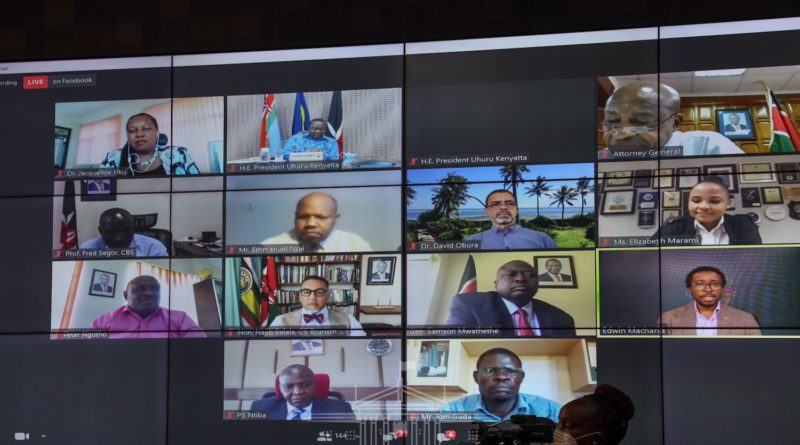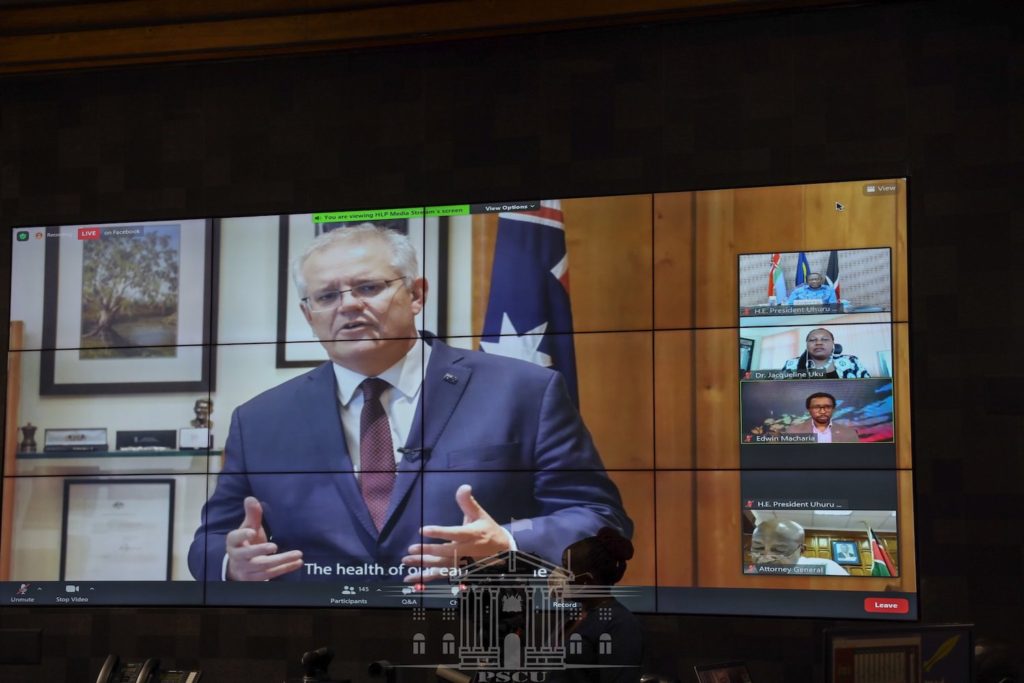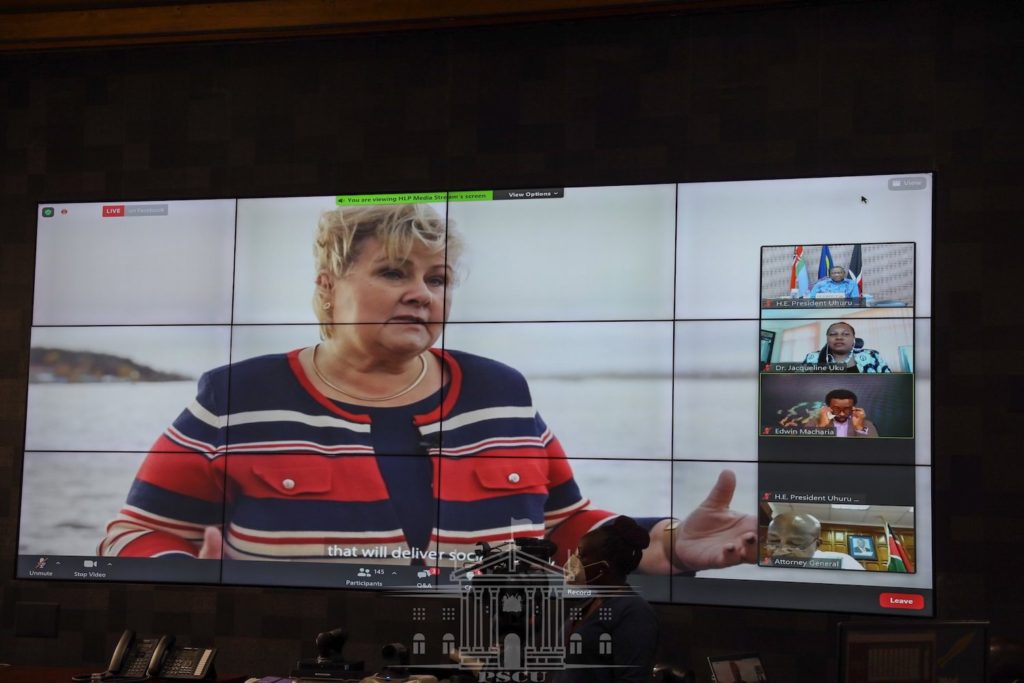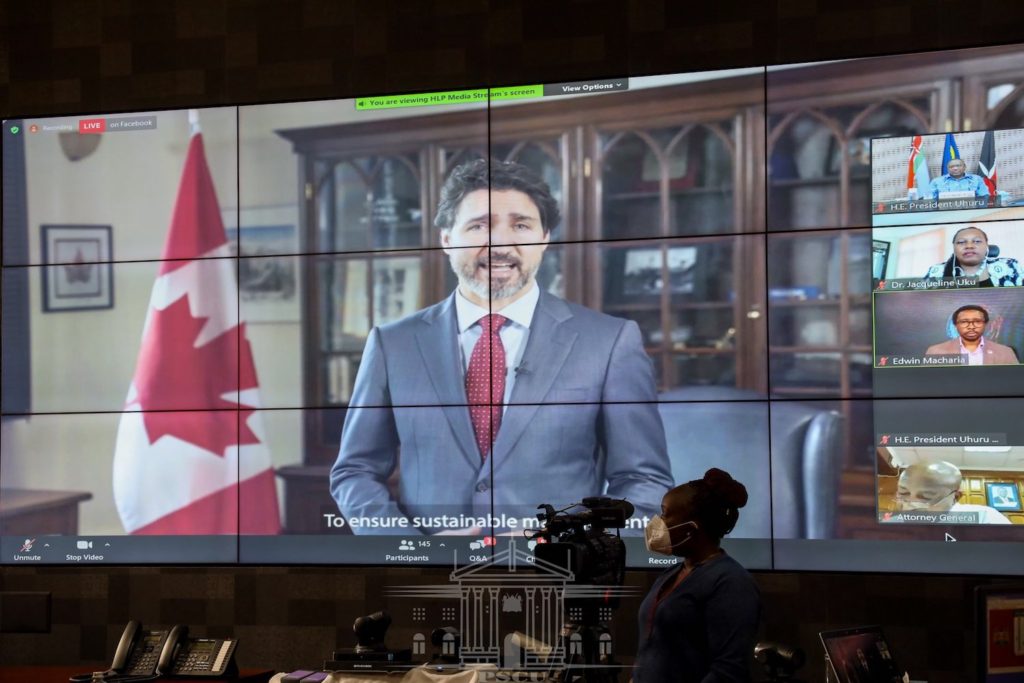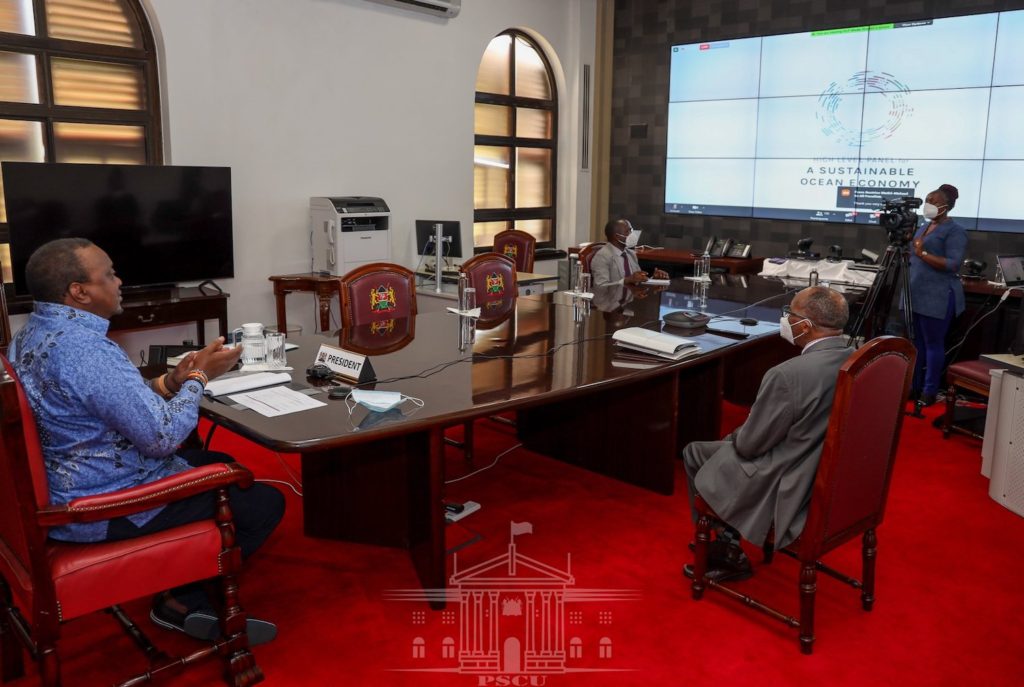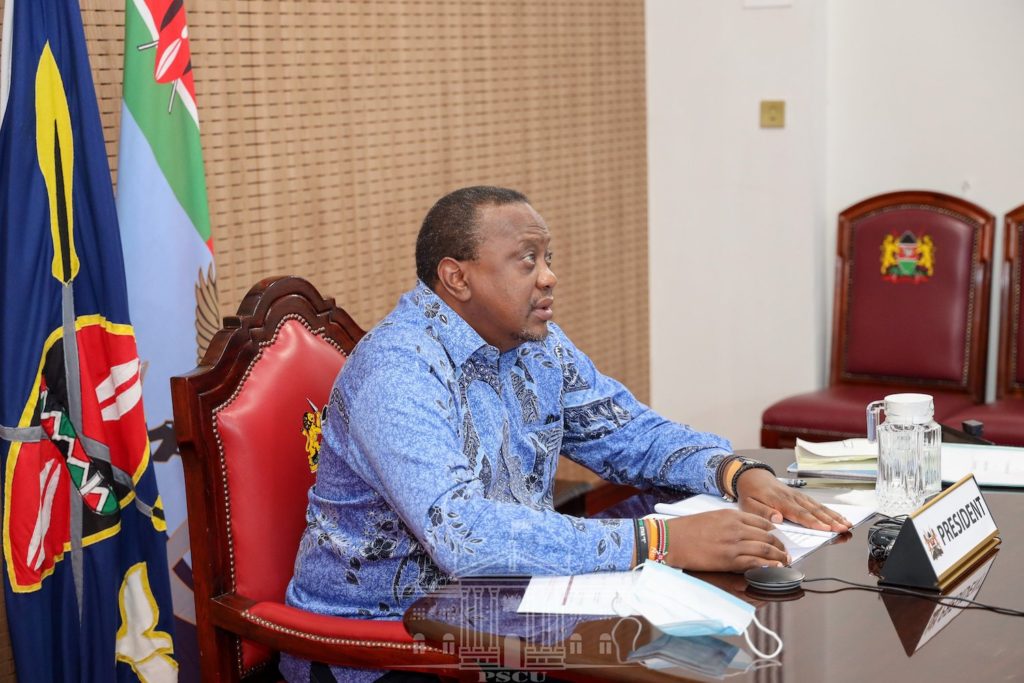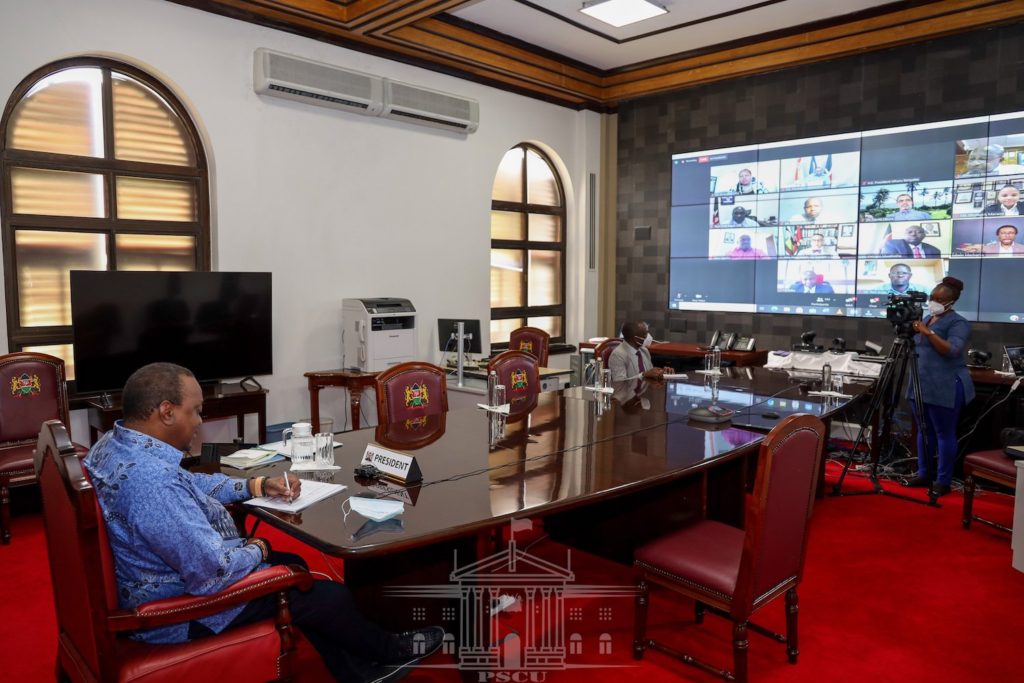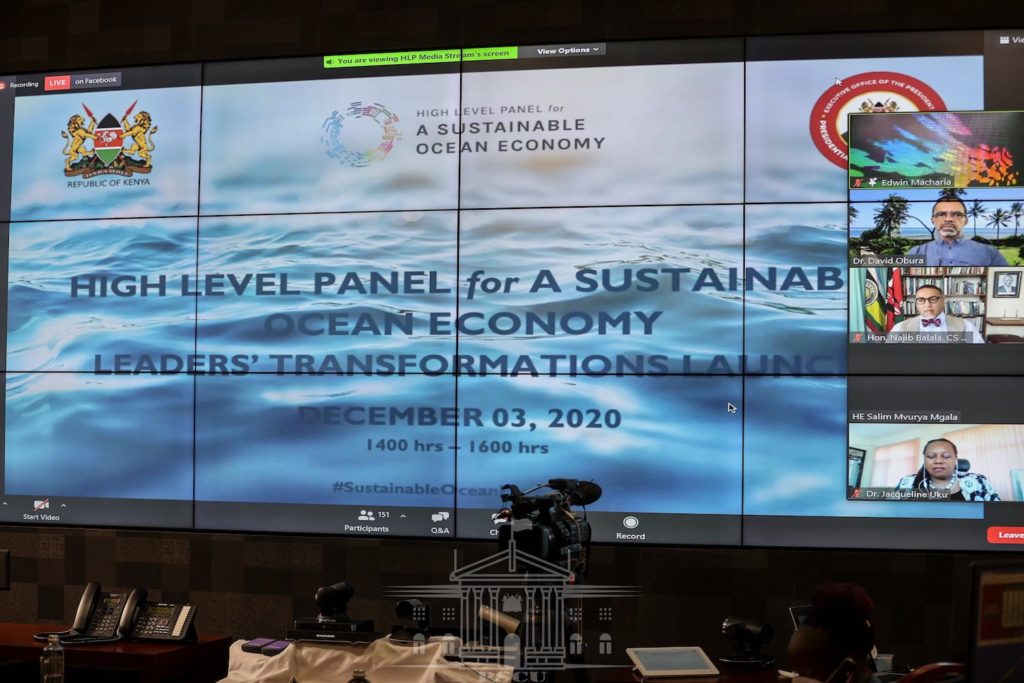Blue Economy Key To The Attainment Of Kenya’s Vision 2030 – Kenyatta
From president.go.ke and Twitter/@StateHouseKenya
President Uhuru Kenyatta has said Kenya has prioritized the sustainable utilization of its ocean and blue economy resources as an enabler of the Vision 2030 economic blueprint.
“It is clear that the ocean economy is a smart investment that can deliver social, economic, and environmental benefits to our people.
“As such, Kenya is keen to fully realize the potential of its 142,400 square kilometre Exclusive Economic Zone. However, as we do so, we will steadfastly protect our marine resources even as we pursue its enhanced development and productivity,” the President said.
The Head of State spoke Thursday at State House, Nairobi when he presided over the national launch of the New Ocean Action Agenda which is an offshoot of a similar global plan by the fourteen-nation High-Level Panel for Sustainable Ocean Economy.
President Kenyatta is a member of the panel whose objective is to promote sustainable utilization of ocean resources by striking a balance between their economic exploitation and conservation requirements.
Besides national government efforts to reposition the blue economy as a key economic driver, the President said County Governments had also realised the importance of the sector to regional economies.
“In addition, our coastal economic bloc, Jumuiya ya Kaunti za Pwani, comprising six counties along the coastal region – Mombasa, Kwale, Kilifi, Tana River, Lamu and Taita Taveta has identified the ocean and blue economy as one of three value chains to prioritize in their county development plans.
“The Lake Region Economic Bloc, which represents the socio-economic aspirations of fourteen counties within the Lake Victoria Basin that constitutes 30% of Kenya’s population, has similarly prioritized the blue economy as a key economic pillar,” he said.
The Head of State listed the ongoing reconstruction of the Liwatoni Fisheries Complex at a cost of Kshs 318 million, training of 1,000 fishermen, set up of Bandari Maritime Academy as well as the launch of the Kenya Coast Guard Service as some of the efforts being made to promote sustainable utilization of Kenya’s ocean resources.
Further, the President said Kenya is proactively implementing policies aimed at tackling the challenge of ocean pollution especially from plastic waste.
“In 2017, Kenya banned the use of polythene carrier bags. In addition, we have now implemented a ban on single use plastics in all protected areas including beaches, national parks, conservation parks, and forests,” the President said, adding that the Government is working with local communities to conserve coastal ecosystems.
“For example, through the support of the Kenya Marine and Fisheries Research Institute (KMFRI), the Mikoko Pamoja Project has recently been able to restore 10 hectares of mangrove forests.”
President Kenyatta voiced the country’s commitment to its international agreements on sustainable utilization of ocean resources saying Kenya will continue leveraging on global institutions based in the country such as UNESCO’s Intergovernmental Oceanographic Sub-Commission for Africa and Adjacent Island States, and the Global Sea Level Observation System (GLOSS) to sharpen Kenya’s ocean conservation efforts.
“As a member of the High-Level Panel for a Sustainable Ocean Economy, I commit myself and my Government to achieving 100% sustainable ocean management of areas within our national jurisdiction, guided by Sustainable Ocean Plans, by 2025,” he said.
Retired Chief of the Defence Forces General Samson Mwathethe who chairs the National Blue Economy Committee said Kenya is making steady progress towards reaping the immense economic benefits presented by the sector.
General Mwathethe regretted that the country had in the past failed to take advantage of its blue economy resources and called on the private sector to partner with the Government in reviving the sector.
On his part, Agriculture CS Peter Munya said his ministry was working on ensuring Kenya’s blue economy contributes more to the economic progress of the country by providing appropriate incentives and policy frameworks for the sector to thrive.

